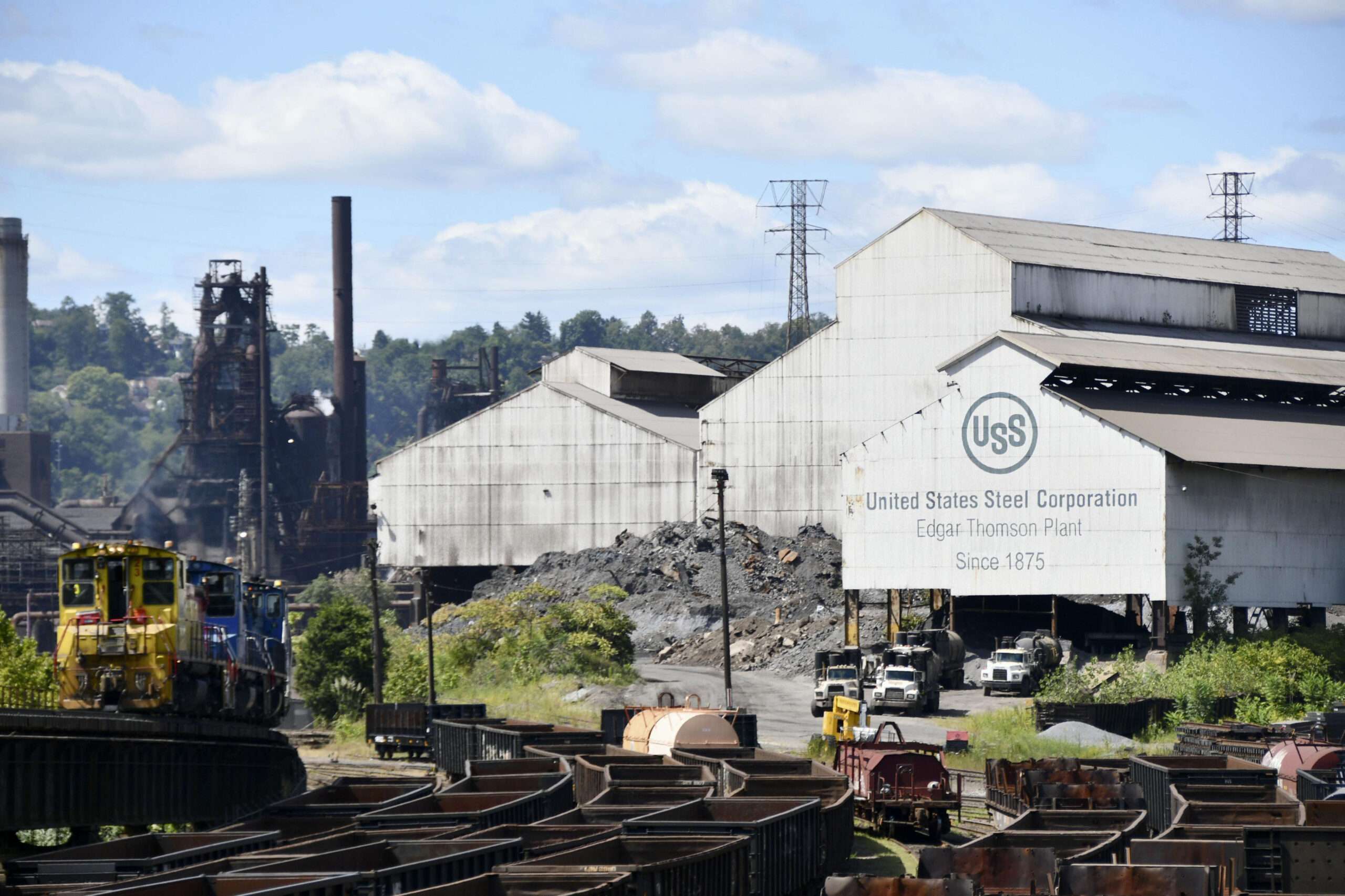Trump’s Promise to Halt U.S. Steel Sale Causes Stock Plunge
In the wake of President-elect Donald Trump’s announcement that he opposes the sale of U.S. Steel to Japan’s Nippon Steel, the stock market’s immediate reaction revealed a stark consequence of government intervention in business transactions. Trump asserted that he would “block this deal from happening,” which swiftly led to a significant decline in U.S. Steel’s stock price, sinking more than 7 percent in response to his remarks. This incident illustrates the financial ramifications of political interference, as many investors had already anticipated that such a move would face scrutiny under the Biden administration. However, Trump’s renewed vow to obstruct the sale resulted in a clear devaluation of the company, indicating that the potential benefits of the transaction—especially the promised $2.7 billion investment from Nippon—were overshadowed by the fears of prolonged governmental involvement.
Politicians like Trump and President Biden, along with others such as Senator J.D. Vance, maintain that blocking the sale is in the best interest of U.S. Steel and its employees. However, this perspective is misleading, as the very action they endorse actually diminishes the company’s value. The promised investment from Nippon Steel was intended to upgrade U.S. Steel’s aging plants and operations, which, if realized, could have bolstered the company significantly. In stark contrast, Trump’s proposed alternatives, which include “Tax Incentives and Tariffs,” have the potential to exacerbate the challenges that U.S. Steel faces. The over-reliance on government support, rather than fostering innovation and adaptation, has historically contributed to the decline of the American steel industry.
The irony lies in the fact that U.S. Steel has a long history of seeking government aid while simultaneously being protected from competition. This reliance cultivated a reluctance to modernize and innovate, ultimately weakening the company’s competitive stance in a global market. By preventing the sale to Nippon Steel, the same government that previously sheltered U.S. Steel from international challenges is now blocking an opportunity for growth and revitalization. This situation raises fundamental questions about the role of government in the economy and the detrimental effects of protectionist policies that stifle real progress.
Throughout his presidency, Trump has often touted the stock market’s performance as a benchmark for his success in office, perceiving rising stock valuations as validation of his economic policies. His administration has consistently positioned itself as a champion of business interests. Therefore, Trump’s current actions against the proposed deal with Nippon Steel seem contradictory to his previously staunch advocacy for free-market principles. The immediate stock market reaction to his announcement serves as a reminder that political rhetoric can have tangible consequences, underscoring the disconnect between political pronouncements and economic realities.
Moreover, the broader implications of such government interventions extend beyond U.S. Steel and affect the overall health of the American steel industry. By consistently denying the viability of foreign partnerships and investments, the government risks perpetuating an environment hostile to modernization and efficiency. Without the influx of foreign capital and expertise, companies like U.S. Steel may continue to lag behind their global competitors, further solidifying their decline in a dynamic market landscape. Policymakers need to reconsider their approach and embrace strategies that encourage collaboration and investment rather than isolationism and protectionism.
In summary, Trump’s opposition to the U.S. Steel-Nippon Steel deal highlights the perils of government intervention in the marketplace. Such moves, driven by a desire to protect American interests, can inadvertently lead to adverse outcomes, undermining the very companies they aim to assist. By ignoring the significance of foreign investment and the realities of a global economy, politicians may inadvertently jeopardize the future of key industries. Moving forward, a reevaluation of policy strategies that affirm the importance of innovation, competition, and open markets will be essential for revitalizing U.S. Steel and ensuring its competitiveness on the world stage.
Share this content:











Post Comment